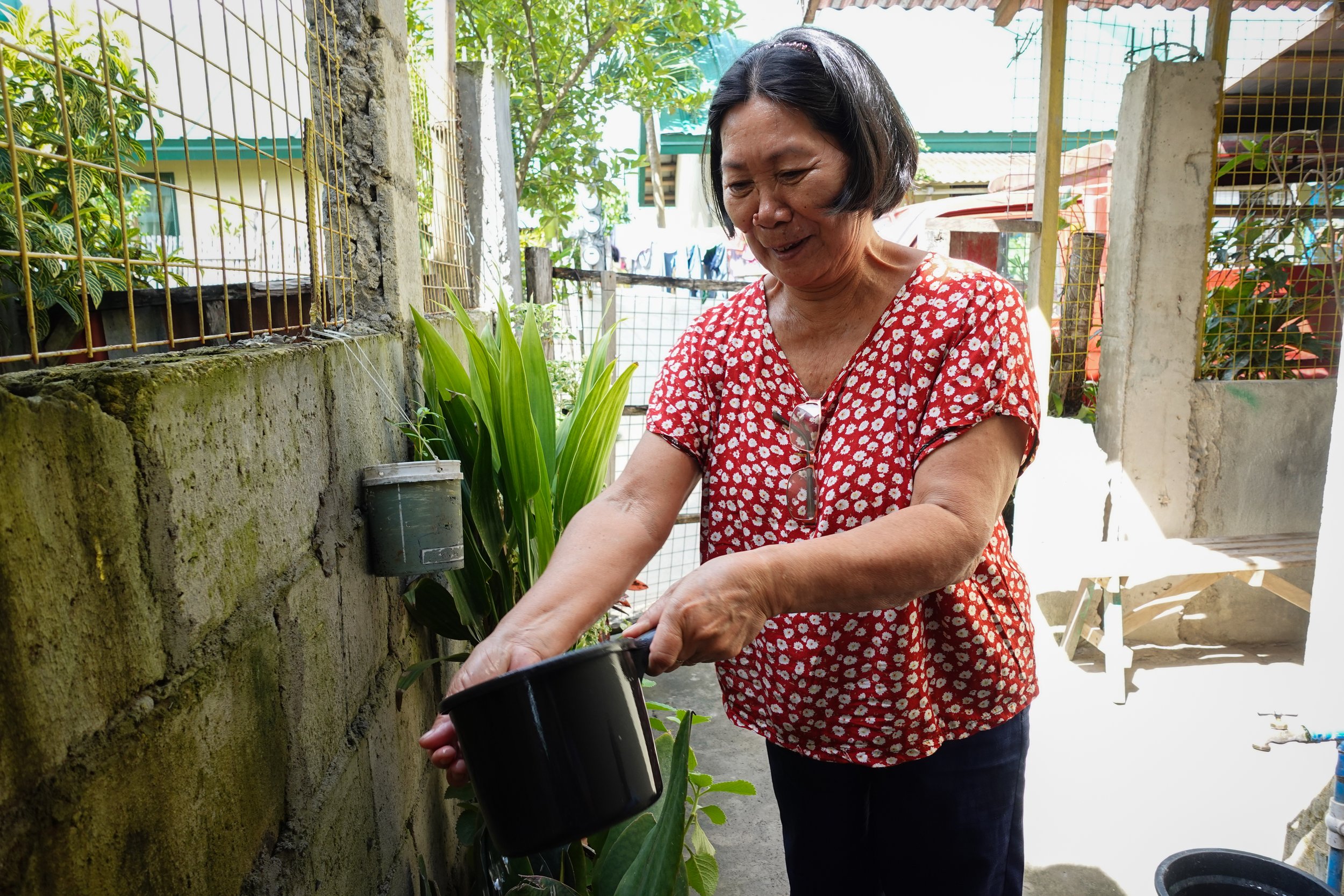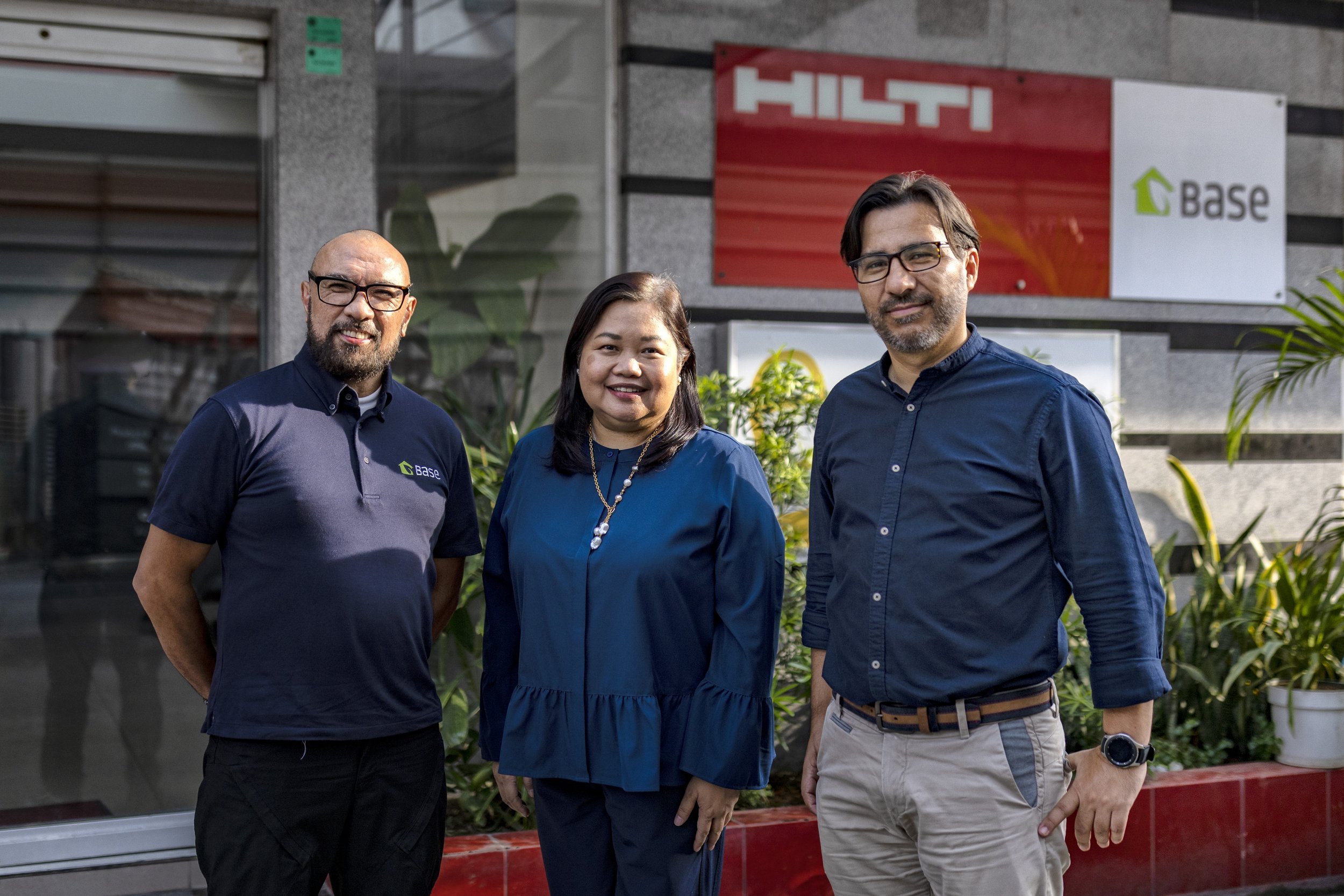Stories
Transforming Lives: Join Our Journey
Offering Livelihoods Through Bamboo
In Nepal, many families live in fragile bamboo huts on informal land, vulnerable to natural disasters and eviction. Faced with uncertainty, they’re unable to invest in safer futures. This story explores how the Hilti Foundation supports a holistic solution—providing stable homes, creating livelihoods, and helping build a growing bamboo-based ecosystem that offers both security and opportunity.
How Nepal is Embracing Disaster-Resilient Housing Solutions
For 49% of Nepal’s population, or 15 million people, security, warmth, and an overall foundation for a stable life are still unattainable. In rural areas, particularly, homes are often fragile and vulnerable. Living under extreme weather conditions, these families are in a constant state of worry about their shelter. Finding a long-term solution requires not just better materials, but also a shift in mindset.
A Traditional Transformation: The Modern Method of Bamboo Construction
While bamboo has always symbolized resilience, traditional bamboo homes often fail to withstand the very disasters they are meant to endure. Families spend years repairing fragile huts, only to see them damaged again by floods and storms, losing time, resources, and the chance for a secure future. For Gita Devi, that changed when she moved into her new home. Listen as she shares her journey.
Building Stability: Reshmi’s Journey and Nepal’s Bamboo Revolution
The monsoon rains came without mercy, flooding the floors of Reshmi’s bamboo hut. The fragile roof sagged under the downpour, water dripping onto the mud walls as she and her two children huddled in a corner. The jungle loomed just beyond their door, and with it came a constant threat as snakes, insects, and scorpions often found their way inside. This was not just her reality; it was the reality of millions of families across Nepal’s rural plains.
Empowering People Together: A Look Back at 2024
In 2024, people and their communities made important progress—gaining new skills, building safer homes and contributing to stronger, more sustainable environments. Together with our partners, we are proud to play a supporting role in these efforts, helping to create opportunities for lasting change. From Nepal to Peru, Liechtenstein to Kenya, here are some of the year’s highlights.
A Mission to Cool Lives in India
India's climate is as diverse as its culture, but scorching summer months are a shared reality for millions. With urban areas experiencing “heat island” effects, and rural communities often lacking adequate shelter, many households find themselves facing insufferable indoor temperatures, soaring to 45 or 50 degrees celsius without proper insulation.
A Decade of Fighting for a Safe Home
Imagine being decided upon, having your home taken from you overnight and being forced to rebuild with what you have left. For most people this is unimaginable, but for Rodelio and Marivic it became reality. The land their family had farmed for generations has been cleared for development, leaving them facing an uncertain future.
Improving Living Standards with Bamboo
For centuries, bamboo has been central to life in Nepal, serving as a material for homes, tools and rituals. In the southern Terai plains, it was essential for survival in regions prone to natural disasters. However, traditional bamboo structures were temporary and fragile, requiring constant repair and maintenance, preventing families from investing in other aspects of their lives.
Affordable Housing: Laying the Foundation for a Better Future
Inadequate housing is more than just a deficit—it’s a barrier to safety, health, andeconomic progress, trapping countless families in a relentless cycle of poverty with higher exposure to violence and limited future perspectives for their children. The Hilti Foundation is on a mission to break this cycle through innovative technologies, sustainable building practices, and through working on solutions to solve the problem holistically.
Bamboo Pioneers: A Decade of Building Stronger Communities
As we celebrate the 10-year anniversary of the BASE Bahay Foundation, we look back on a decade of groundbreaking work in bamboo construction, transforming lives of thousands of low-income families through innovative and affordable housing solutions.
Overcoming Peru’s Housing Crisis with Innovation
In Peru, a safe home is a distant dream for many families facing the dual threats of environmental risks and a severe lack of skilled labor. An alarming 80% of constructions are informally built, leaving half of them vulnerable to earthquakes. This shocking reality demands urgent action.
Building Safe and Secure Homes in Peru
After her visits to Peru as part of the Viviendas Progresivas (VIPRO) project, Melinda Sasfi, Project Manager at Hilti Foundation, observed that houses are built haphazardly, and quality is not a focus. As a result, people build without professional supervision and much of what is built is simply poor construction. At the same time, the government has no plan to solve the problem. In addition to the poor quality of construction, there is another challenge: cost.
Making Bamboo Mainstream
For over a decade, the Hilti Foundation investigates and promotes innovative bamboo construction technologies for affordable housing in Southeast Asia. Together with the BASE Bahay Foundation, located in Manila, and implementing partners, more than 1,500 houses have been built in the Philippines and Nepal.
Transforming Lives in Nepal: Safe Homes and Empowered Communities
Where would you sleep, live, and raise your kids without a safe place to call home? Adequate housing is recognized as a human right. Yet, in Nepal, nearly half of the population lives in substandard housing conditions, hindering their opportunities for social and economic advancement. Like many in her country, 29-year-old Pramila, a devoted mother of two, intimately understands the impact of this challenge.
Webinar: Making Bamboo Mainstream
With its research and testing center, the Bamboo Academy and its own construction projects in the Philippines, Nepal and other Asian countries, the BASE Bahay Foundation, founded by the Hilti Foundation in 2014, aims to make bamboo a standard building material of the future – dedicated to the needs in construction of low-income families.
Tackling the Global Housing Crisis with Bamboo
By 2030, it is predicted that 3 billion people worldwide will be living in substandard housing. Affecting their education, health and livelihood, this is one of the reasons why underprivileged families remain in the so-called poverty trap. To help alleviate this situation, the Hilti Foundation, together with the BASE Bahay Foundation, collaborate for affordable technology solutions to improve housing and the lives of low-income families.
Reaching the Next Level in Bamboo Construction
To date, CBFT, has been primarily used in the Philippines and Nepal to build affordable homes for families in need. The Hilti Foundation's green and disaster resilient construction technology has now been further developed, showing high potential to be used in larger community buildings to provide livelihoods for families from disadvantaged backgrounds and their communities. The first facility has just opened.
Better Construction for Low-income Environments
The Affordable Housing & Technology focus area is about changing the way low-income families build and live. Here, our work is based on three initiatives: spreading bamboo construction, creating an inclusive housing industry, and building coalitions of impact.
World Habitat Award for Habitat's MicroBuild Fund
We are extremely proud to announce that the MicroBuild Fund has received the World Habitat Award by UN-Habitat. The MicroBuild Fund of Habitat for Humanity International focuses on helping low-income families access housing through microfinance institutions and has helped over one million people worldwide.
Dreaming of a Safe Place to Live
Affordable Housing & Technology is one of the Hilti Foundation's focus areas. That involves more than the well-known Cement Bamboo Frame Technology, which provides safe and sustainable homes for families in need. The Foundation also supports the development and implementation of other solutions to improve the way families live and build.




















